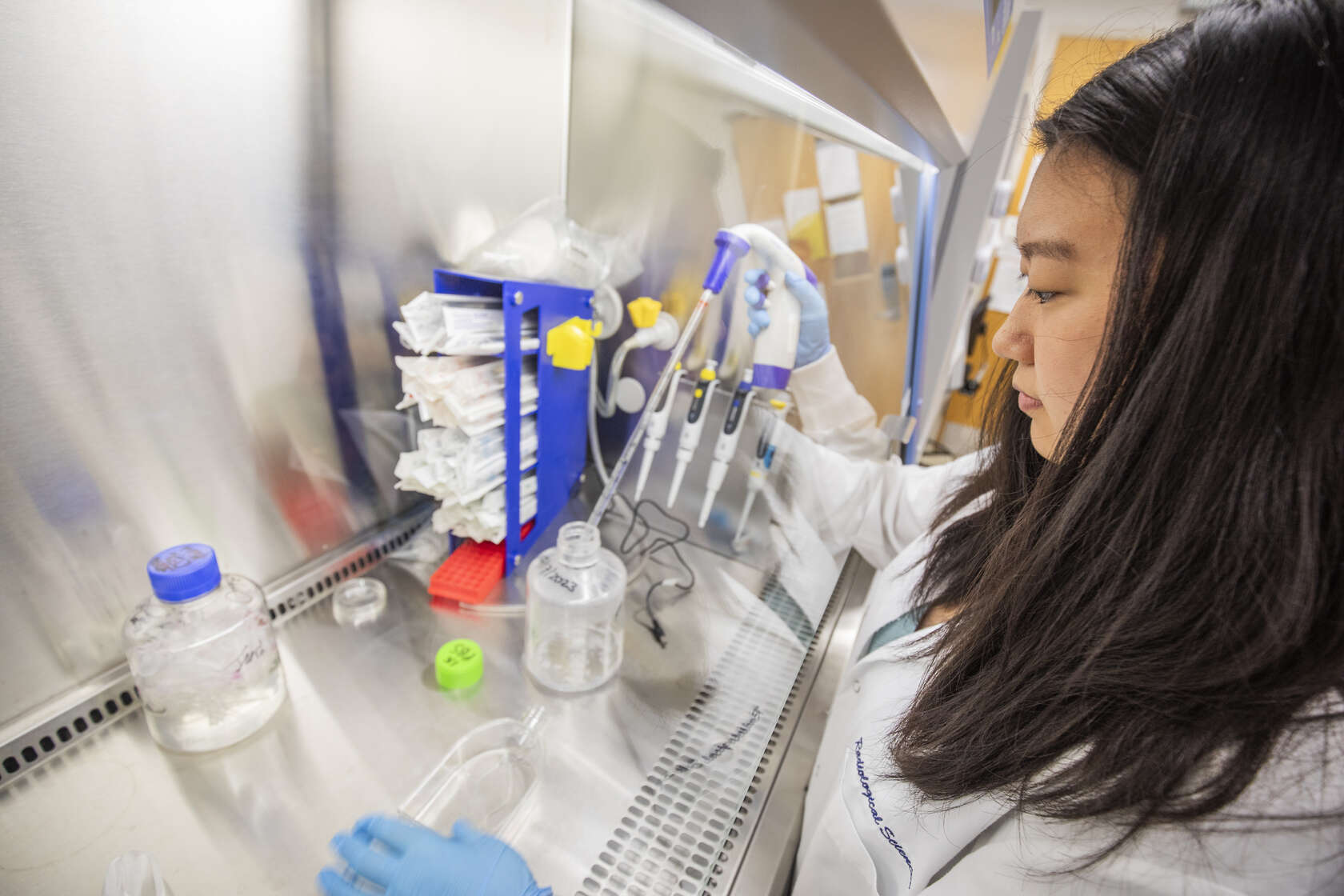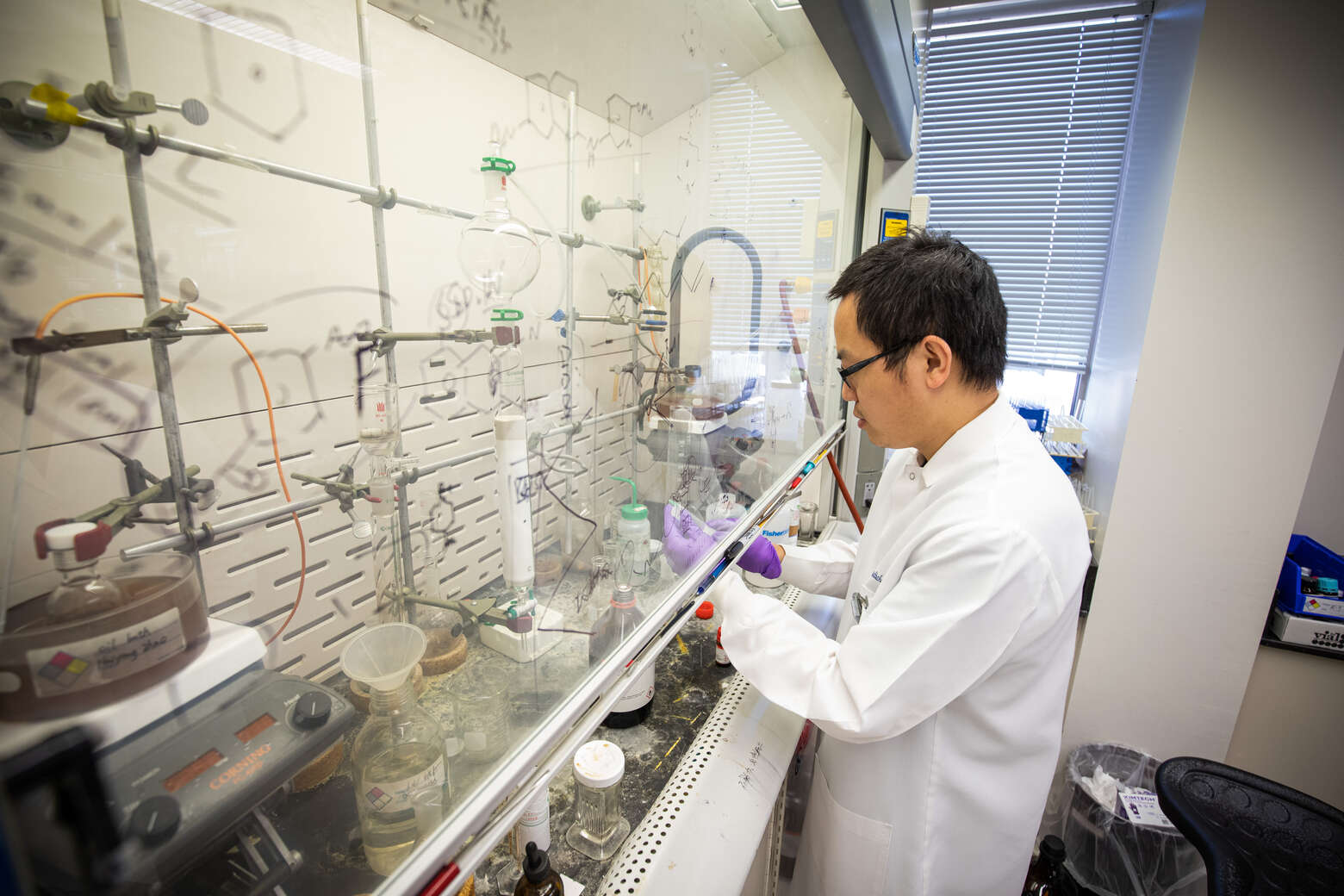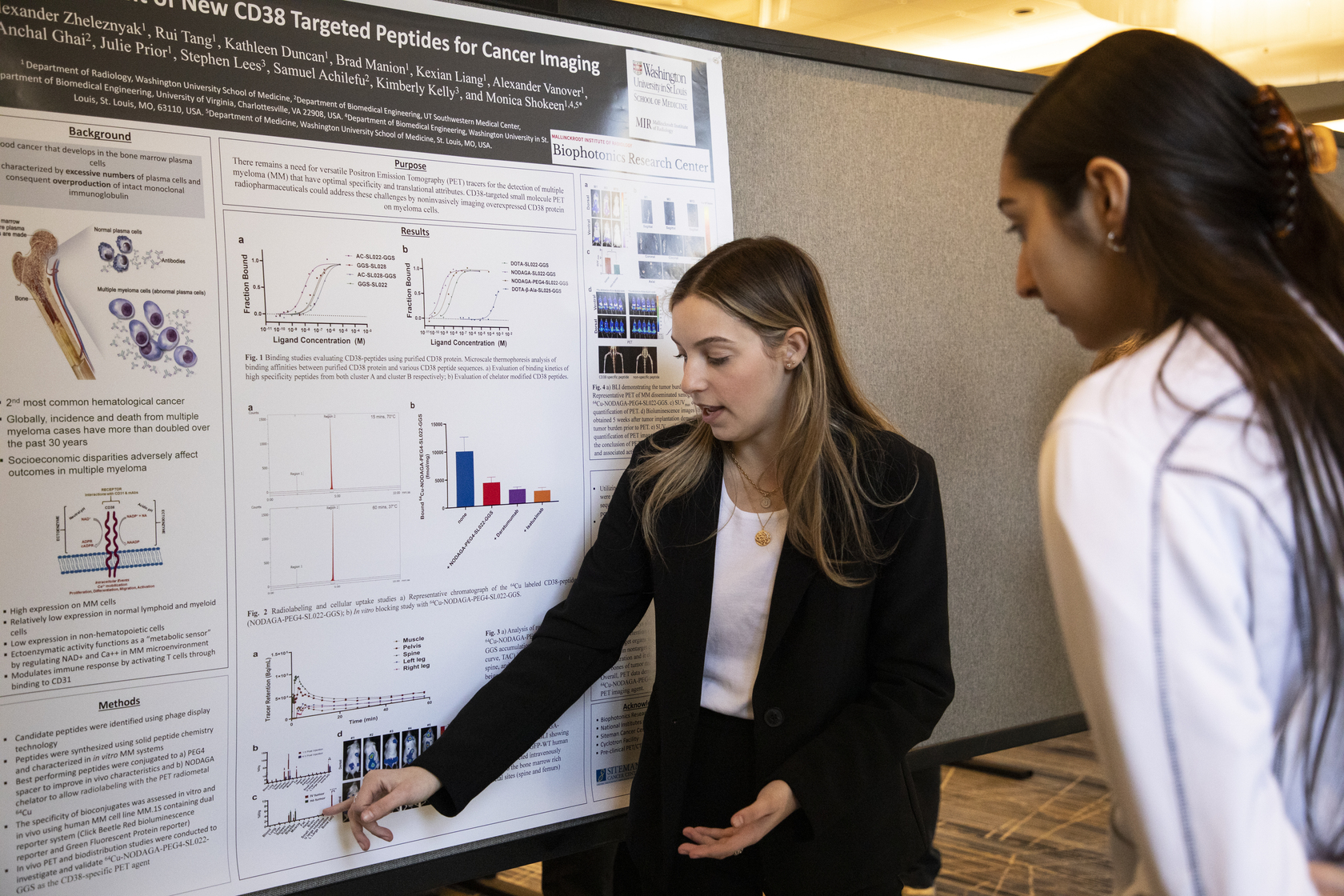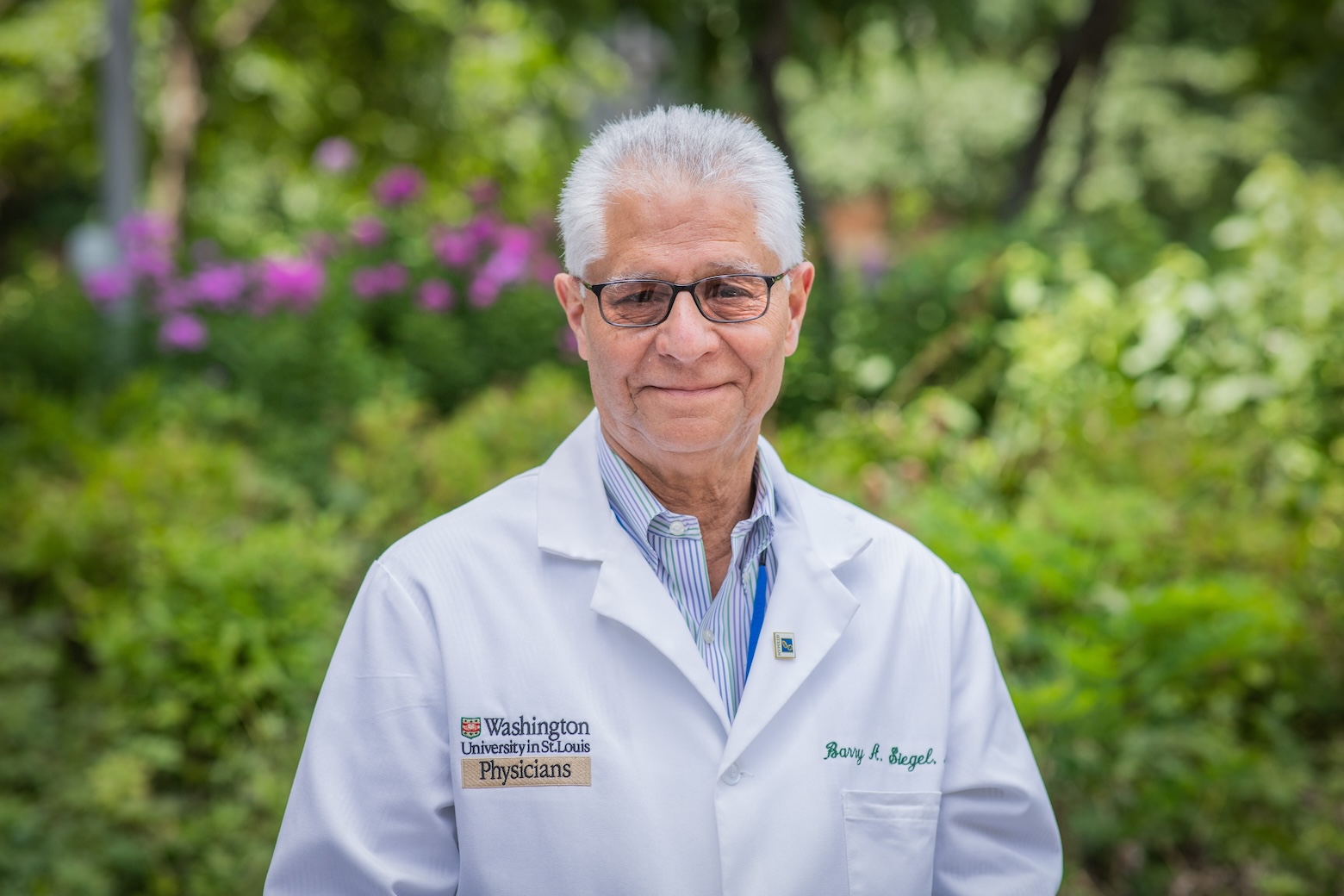MIR Researchers Use Radioimmunotherapy to Cure Non-Hodgkin Lymphoma in Mice
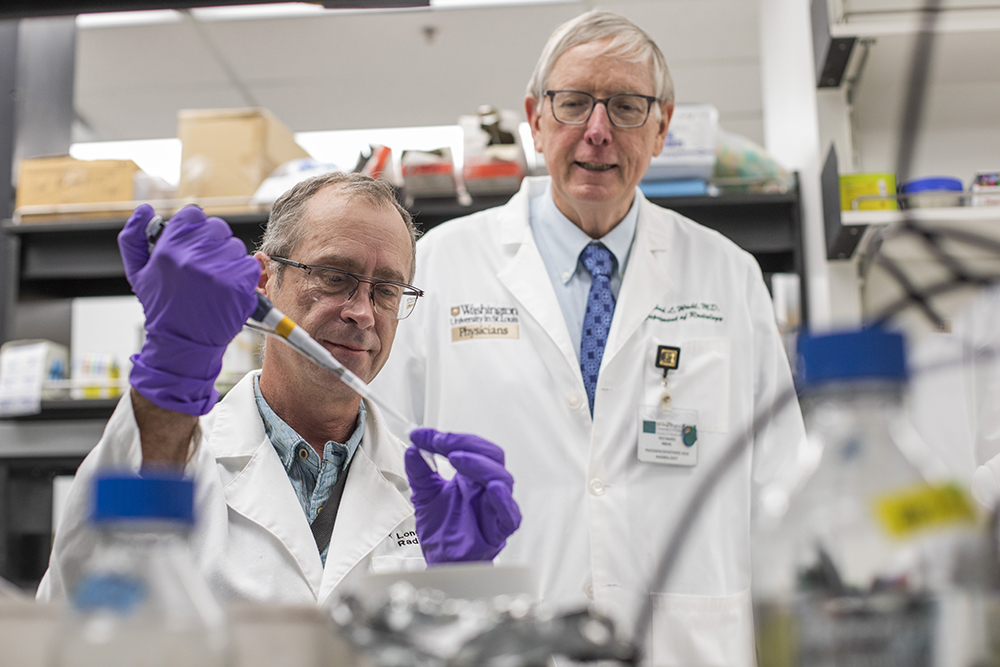
The American Cancer Society estimates that more than 80,500 new cases of non-Hodgkin lymphoma and 20,100 deaths will occur in the United States in 2023. In efforts to improve therapies, Mallinckrodt Institute of Radiology (MIR) researchers used an antibody-based treatment to cure non-Hodgkin lymphoma in mice by targeting CD20, a protein found in higher amounts in patients with certain lymphomas and leukemias.
These efforts, which were featured in the April issue of the Journal of Nuclear Medicine as the best basic science article, build on decades of radioimmunotherapy research. Radioimmunotherapy harnesses the power of the immune system to precisely target radiation therapy to cancers.
The research team’s treatment resulted in long-term survival and elimination of tumor cells in the mice. The current standard of care for non-Hodgkin lymphoma involves chemotherapy and immunotherapy.
“Although this chemotherapy with immunotherapy combination is usually initially effective, many patients don’t respond or relapse, so we need improved therapies,” said Richard L. Wahl, MD, the Elizabeth E. Mallinckrodt Professor of Radiology and director of MIR.
The research team consisted of Wahl Lab manager Mark, Longtine, PhD, Wahl Lab staff scientist Kuhwan Shim, PhD, Richard L. Wahl, MD, and MIR faculty members Diane S. Abou, PhD; Mark J. Hoegger, MD, PhD; Richard S. Laforest, PhD; and Daniel L.J. Thorek, PhD.

